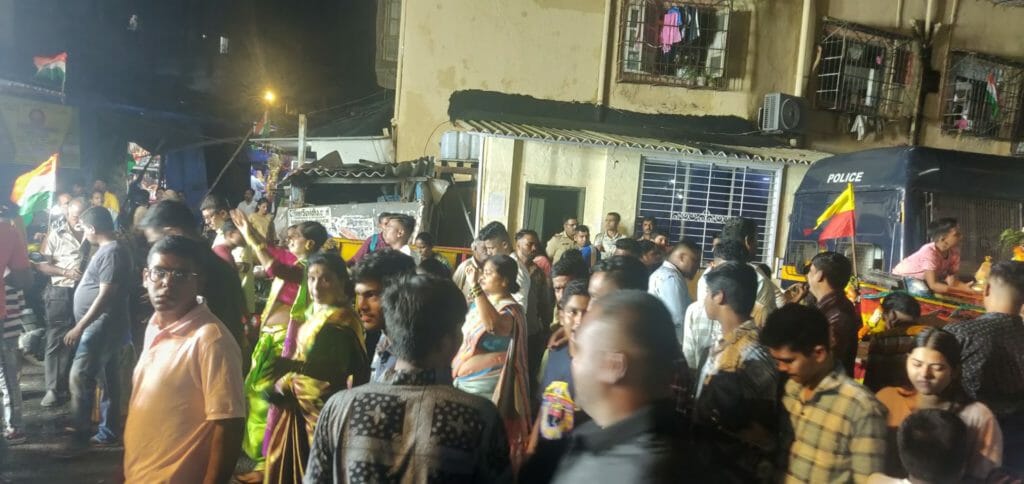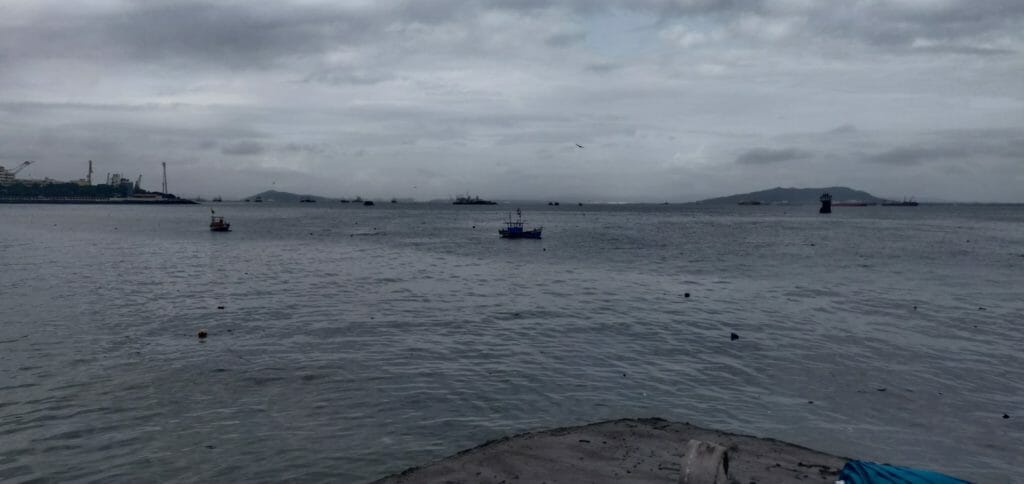Mumbai’s fisherfolk share a strong camaraderie that has only strengthened over time amidst threats to their livelihood. For the last several years, they have complained about dwindling catch due to various infrastructural projects. Some left the occupation decades ago for upward mobility and more are now contemplating leaving.
What remains unchanged in the face of adversity is the enthusiasm and celebrations around Narali Purnima, the annual coconut festival celebrated on August 11th this year. The festival is of great significance to the fishers from the Koli community, the city’s earliest inhabitants.
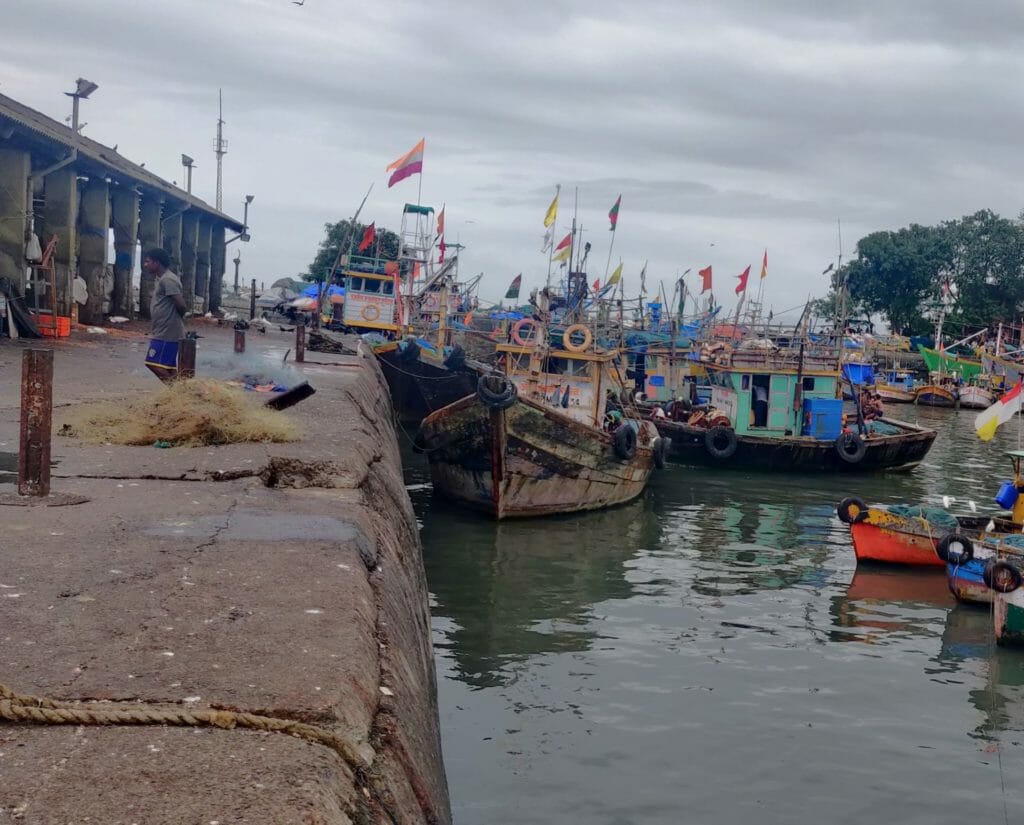
Notably, Kolis were given the status of Other Backward Classes in the Central list of OBCs for Maharashtra. Their small colonies, known as Koliwadas, are woven close to some of the most expensive and high-profile areas of the city. There are about 30 Koliwadas in Mumbai. Despite threats from rapid urbanisation, Kolis have managed to preserve their own way of living for generations. This is visible in the food they eat, the clothes they wear, the language they speak, and their celebrations of the festival that marks the end of the monsoon season.
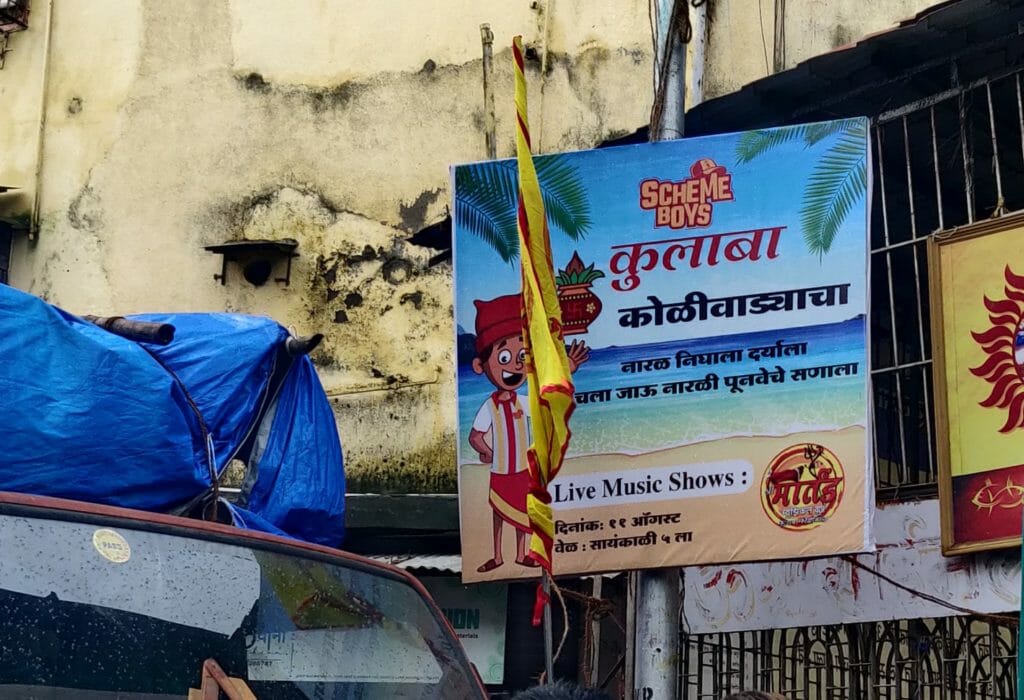
“Every fisher feels that their fellow brother should come back home safely from the sea, that is the purpose of this festival, we feed coconuts to the sea and worship it to keep it calm so that it ensures our safe return,” says Dilip Koli, a 51-year-old fisherman from Colaba Koliwada.
The festival is celebrated alongside Rakshabandhan. “No matter where they live, our sisters visit us during Narali Purnima. Early in the morning, they tie us rakhis and give us money to buy coconuts and play with them,” he says.
Narali Purnima’s game and the players
19-year-old Umesh Jangam says the young boys in Colaba Koliwada celebrate Narali Purnima by playing with coconuts all day. If successful in cracking the coconut completely in a single shot, the person breaking it gets to claim it and take both home late in the evening. “We don’t go home for lunch in the afternoon, we are out all day breaking coconuts. We fill our stomachs up with coconut water,” he says. Jangam dropped out of school after class in 10th and started accompanying his uncle to go fishing.
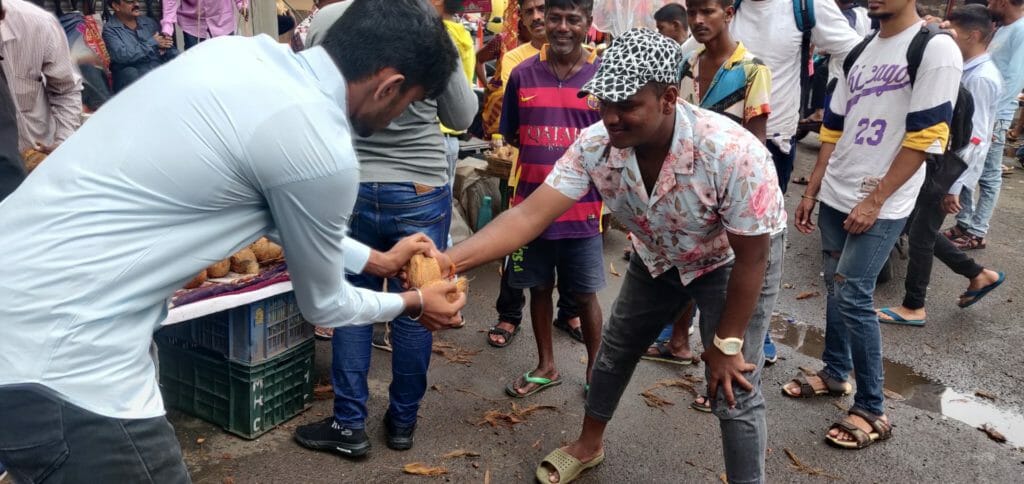
The roads during Narali Purnima are largely occupied by men of all ages throughout the day. Older men even sit in the open to have a drink with their friends in celebration. When asked why women do not participate in the game, the men say it is because there is a greater risk of physical injury that they believe a woman won’t be able to tolerate.
A Koli woman, who did not wish to be named, says there are a lot of guests that visit the house during Narali Purnima and they need to be catered to frequently. The only time women are seen in the day is when they are out to buy vegetables. Meanwhile, Jangam’s 65-year-old grandmother, Asha Dhanu says, “A lot of women dance in the evening while the coconut is taken to the sea, we have a lot of fun. The coconut that is collected by the men is used for sweets like Karanji.”
Amongst Kolis, the fishing activities are gendered as well: Men catch the fish, women sort it, clean it and then sell it.
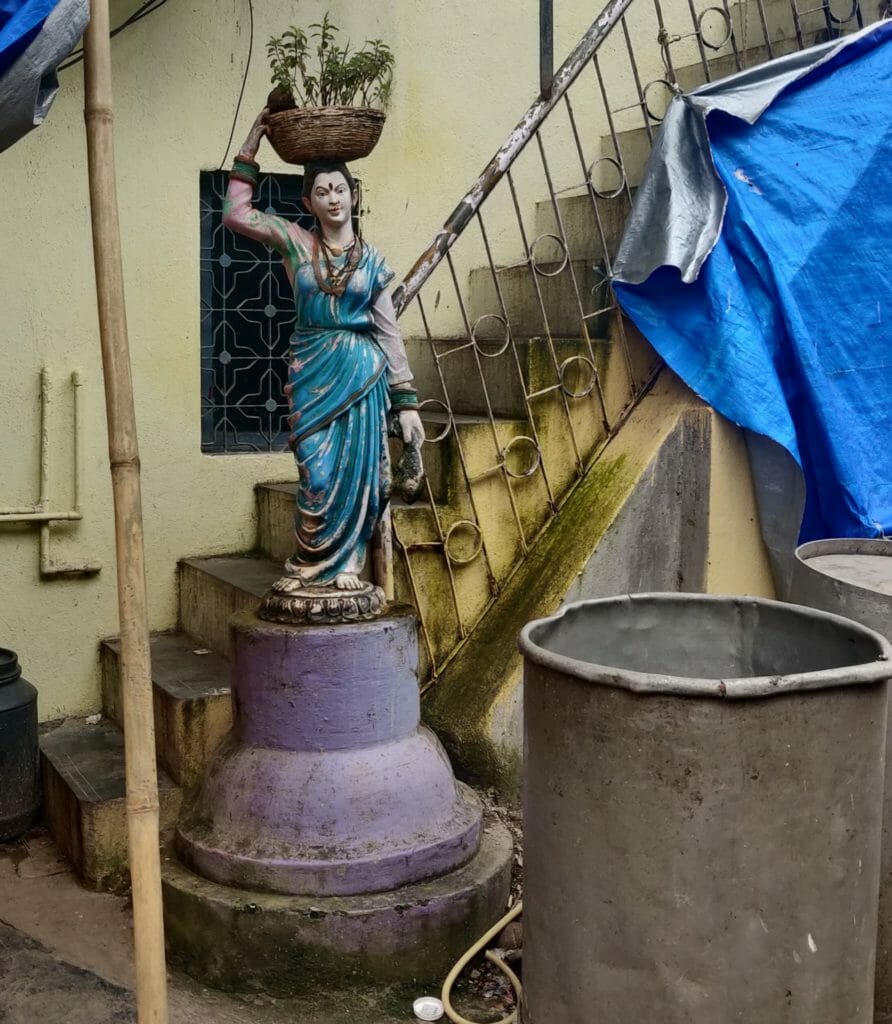
Narali Purnima will remain our festival
Even those from the community who no longer fish say they would continue celebrating Narali Purnima no matter what. It is the festival of hope for the fishers after an annual two-month ban starting in June. The ban on fishing is implemented across the country in different months and for varying durations, taking weather patterns of different regions into account. Devendra Tandel, president of the All India Machhimar Kruti Samiti, earlier told us that one rationale behind the annual ban is to protect fisherfolk from loss of life and damage to their boats.
The ban moreover allows various species of fish to breed so that there is a bigger catch once it is lifted.
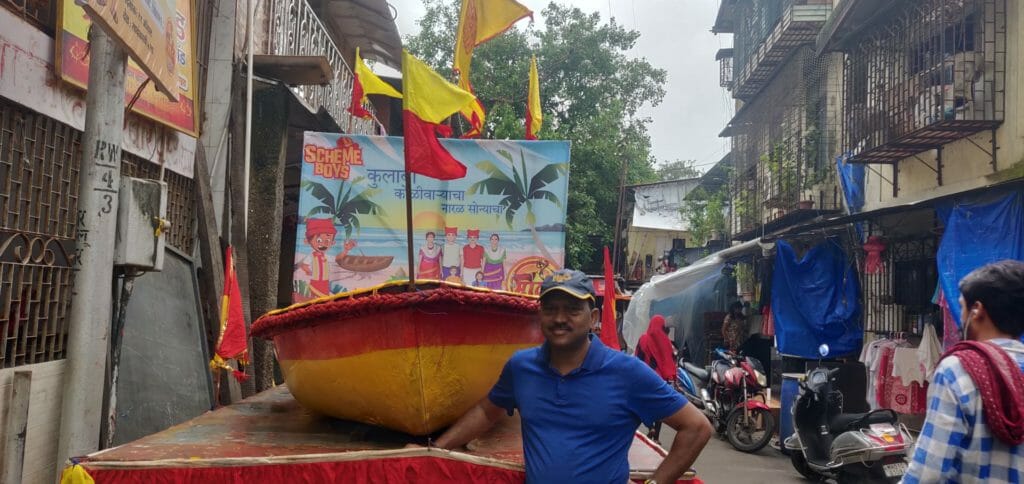
By evening, the boat behind Paresh Sirtandel will be home to a coconut, which will be kept in a Kalash and showcased around the area lavishly as the “golden coconut” till it is offered to the sea from Jamshetji Bunder. However, Sirtandel stopped all fishing activities 20 years ago and has been working with IDBI bank ever since. “I have a 19-year-old son who wants to get into the fishing business but there is no money or stability left in it so I am pushing him towards formal education,” he says. “If he gets into this line, he will not return to education.”
Read more: Drowning in debt: Mumbai’s fisherfolk struggle to survive extreme weather and dwindling catch
Sirtandel says he wants his son to be involved in fishing but cannot imagine a life of uncertainty for him. “If the business was good, even I would be doing this instead of service. Regardless, Narali Purnima is the festival of our community and me and my family will continue celebrating it,” he says.
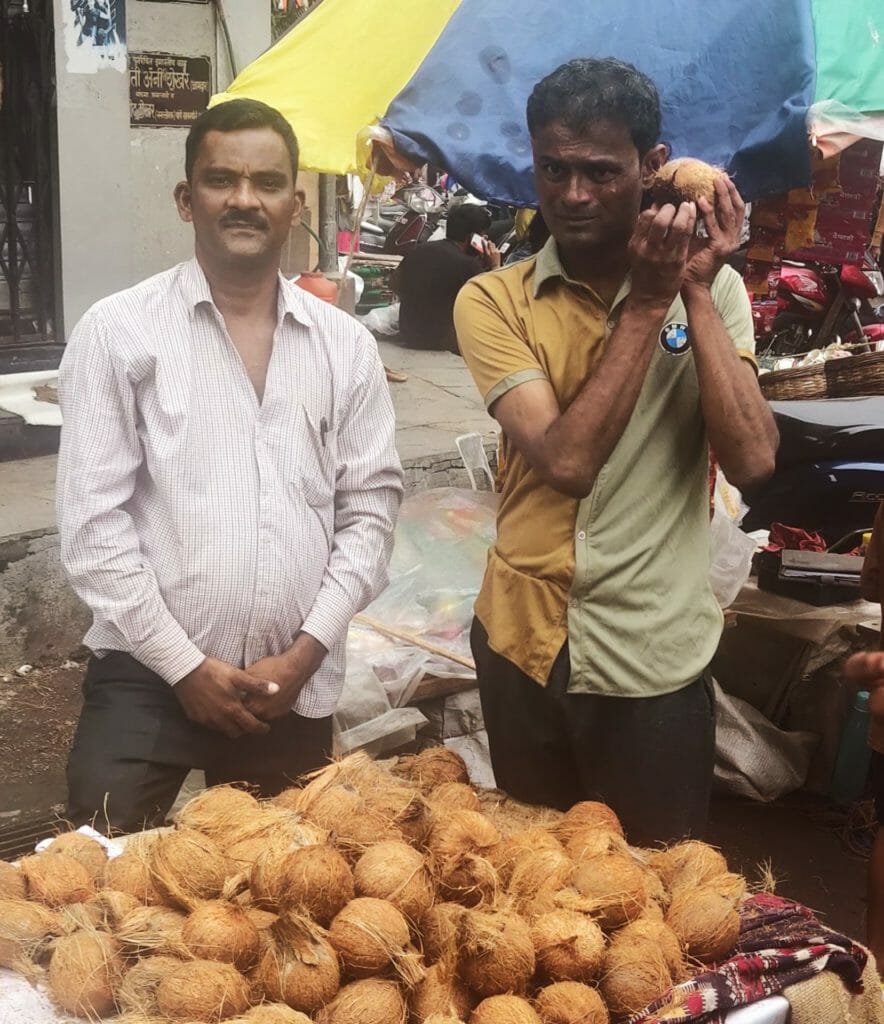
Grand celebrations
The big evening event is organised by Colaba Koli Samaj and the money for it is collected from the community members living in the area. Explaining what the flags and the colours represent, another fisher, Naveen Daule says, “The yellow is the colour of our primary deity, Khandoba. The red for us represents calm.”
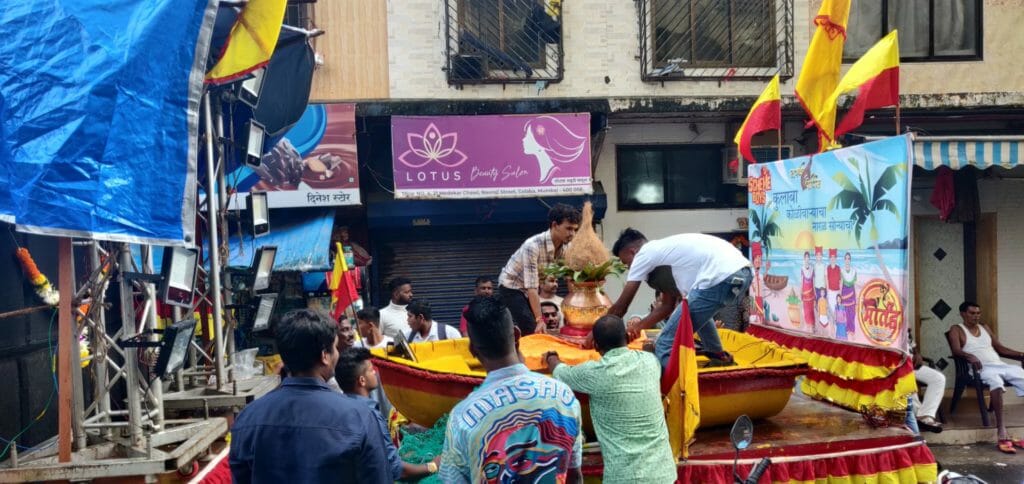
Ahead of the boat is a big van inside which a live band plays a mix of traditional beats and tunes of popular songs that are amplified using gigantic speakers. The musicians also belong to the Koli community.
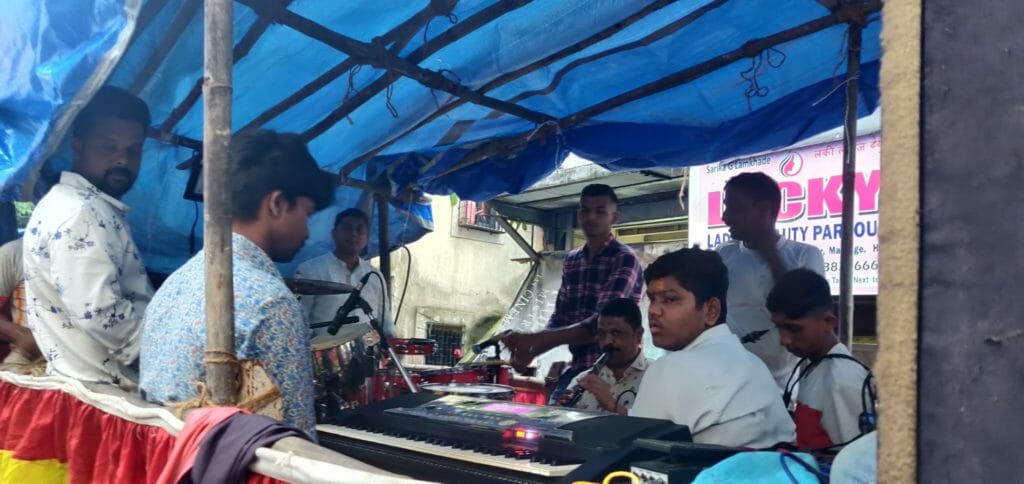
The boat and the ‘golden coconut’ in it are on the move soon after the sunset. It is taken around the Colaba Koliwada market, and gradually the fishers join the procession that is headed to Jamshetji Bunder.
